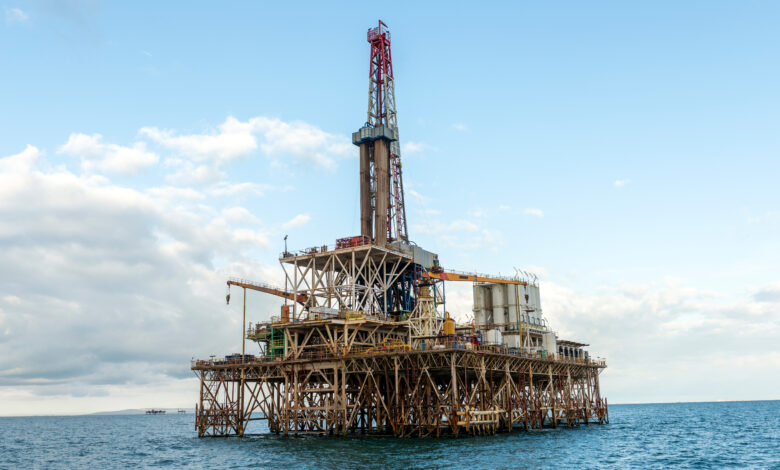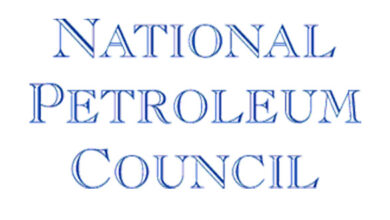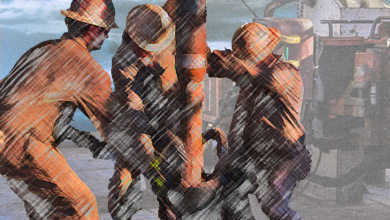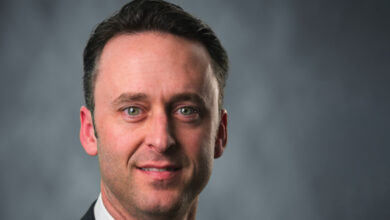GL, SOCAR AQS push the limits in Caspian through operational, technical and ESG innovations
Technologies and out-of-the-box thinking helping these companies to maximize production potential in Azerbaijan and beyond

Staff Report
For decades, Azerbaijan has been known in the oil and gas sector for its giant offshore fields like Azeri-Chirag-Gunashli and Shah Deniz. While those projects remain lucrative for organizations like the state-owned SOCAR and supermajors like BP, there is another type of asset that has received less attention: onshore brownfields. GL, the first Azerbaijani-owned private operator in the country, is looking to change that.
Founded in 2019, the company was formed with a vision to maximize the resource potential of mature fields, starting in the Caspian region but also beyond. Their approach? “We have to think outside the box,” said CEO Asif Zeynalov. He’s corralled a team of what he calls “the right people for the right job,” including David Triolo, Drilling and Wells Director; Kenan Aliyev, Subsurface Director; and Ilgar Ibrahimli, Vice President of External Affairs and Communications. Together, the team has taken older assets that bigger companies were not investing in, and transformed them into value-adding projects for Azerbaijan and the wider Caspian region.
“We at GL believe that there is still a lot of potential in onshore fields of Azerbaijan. And we are proving that this is the case,” Mr Zeynalov said. “There are a lot of things that GL and other companies can do in Azerbaijan. On the technical side, we do a lot of stuff that may be conventional for other parts of the world but are rarely used at onshore fields here. That’s the niche we’re trying to fill.”
Over the past three to four years, the company has implemented an integrated database for advanced reservoir management, as well as deployed technologies like Halliburton’s GeoTap formation pressure testing services. In combination with the use of directional drilling and gravel-pack completions, the first four wells that were drilled in the Buzovna-Mashtaga field last year achieved more production than what had been originally expected.
The company is also looking heavily into ways to leverage machine learning and AI technologies to optimize its field development strategies. Last year, GL’s subsidiary GL Technical Services signed a memorandum of understanding (MOU) with Baker Hughes, which will enhance GL’s access to advanced technologies and the competency of its workforce.
“GL is focused on the long term. We’re not here to make a quick profit and leave, so we’re not afraid to invest in these assets so they can be properly developed,” Mr Triolo said. Most companies that are simply chasing after rapid paybacks on their investments, he added, would find it hard to justify spending significant amounts of money on data acquisition for a well, but not GL. “We may not be drilling very sophisticated deepwater wells, but what we’re offering is a model for development of hydrocarbons in a transparent and proper method in the Caspian region. I think we’re quite unique in that regard, and that’s the beauty of GL’s story.”
Last year, the company was able to achieve a 13% increase in production from Buzovna-Mashtagha, even while most fields in Azerbaijan were seeing declines due to aging reservoirs.
“We had two choices: We could run the fields by applying the old technologies, or we could apply the right technologies, and apply them in the right manner,” Mr Zeynalov said. “And developing a competent staff to be able to use the technology is very important, too. The outcome is 13% increase in production at the end of 2023 in comparison with the beginning of the same year.”
Aside from the Buzovna-Mashtagha field, GL also has operations in the Kursangi, Garabaghli, Gala and Zira fields in Azerbaijan. In addition to managing drilling new wells, the company currently operates between 13-15 workover rigs on a daily basis However, those numbers are set to increase in the coming years, as the company expects to soon launch new multi-well programs – including the drilling of two sidetracks and two 4,000-m+ wells that will require additional drilling and workover rigs. The goal, Mr Zeynalov said, is to increase production from Buzovna-Mashtaga by 20% by 2027 – whereas the field’s production had been declining by an average of 11% for almost 20 years.
“We are working extensively on the program, but these will be much deeper wells than what we have drilled so far,” Mr Zeynalov said. Besides the technical side of this field development planning, another key factor to success will be ensuring a strong business case, he added. “When we do something, we always have to understand why we’re doing what we are doing. We always think of our purpose first”
Sustainability is a part of the company’s vision of being a good operator, Mr Zeynalov emphasized. Since its inception, GL has undertaken environmental stewardship initiatives like tree planting, wellsite cleanups and the implementation of a fit-for-purpose operating management system. He also cited another MOU under which GL is partnering with ADA University to train students in Azerbaijan and aid in their career development.
“We are a local company working with international standards,” Mr Ibrahimli said. “I believe that the way we operate is also helping to improve the way all companies operate in this country.”
SOCAR AQS pushing technical limits
An Azerbaijan-based company setting its sights on growth and advanced technologies is SOCAR AQS. The company currently operates eight rigs, mostly drilling off the coast of Azerbaijan in the Umid, Gunashli, West Absheron and Bulla-Deniz fields. Additionally, the company is involved in the Tuz Golu underground gas storage project in Türkiye.
Speaking at the 2024 IADC Drilling Caspian Conference, held in Baku on 8-9 February, SOCAR AQS General Director Samir Mollayev noted that the company has delivered several milestone wells in recent years. He highlighted the drilling of a high-pressure well in 2019 to a depth of 6,810 m, which is the deepest well in SOCAR’s history. Moreover, the well was drilled on the Umid field, which is “one of the most difficult gas fields in the world,” he added.
In 2021, SOCAR AQS engineered and drilled the first multilateral well in the South Caspian Basin. This operation on the West Absheron field encompassed a range of geological and geophysical studies, as well as the deployment of a sand control system.
In 2023, the company developed and implemented a strategy to drill slim-hole sidetracks from existing wells on the Gunashli field in the Caspian Sea. The field was seeing declining production, yet the platform lacked new available slots that could be used to boost production.
SOCAR AQS was able to overcome challenges such as limited well data, slim hole size, dual casing exit, a long open-hole section and the requirement for shallow sidetracks. By successfully delivering the first slim-hole sidetrack in the field, the company unlocked the potential for the E&P company to increase reserves recovery from the field. “It was a first in SOCAR history, and also a first for the Gunashli field, which holds opportunity for the more than 300 wells on Gunashli that have been completed,” Mr Mollayev said.
On the ESG front, the company is continuing efforts to reduce the carbon footprint of its operations. SOCAR AQS recently began deploying a rule-based generator scheduling technology to improve the efficiency of its diesel use. “Before, it was impossible to run all five generators in a synchronized way due to the high-power and low-power demands. Now, we can actually synchronize the generators by applying this rule-based scheduling,” he explained.
Further, one of the company’s newly acquired rigs is capable of running off of the electricity grid, which could help to reduce emissions. It is also exploring the potential to adopt a battery energy storage system on one of its rigs, which would allow one generator to be replaced with a battery, thus reducing carbon emissions.
“Another important environmental aspect of our work is the sustainable use of water resources,” Mr Mollayev said. A high-capacity water filtration system was recently installed on two platforms operated by SOCAR AQS on behalf of the customer, so water no longer needs to be transported from onshore, further reducing transportation-related emissions. “We’re looking to expand that to other platforms that we operate,” he said.
Looking to the coming years, Mr Mollayev noted that SOCAR AQS will continue to seek opportunities for growth, such as its recent acquisition of two new land rigs for the Bibiheybet and Gurgan Deniz projects, as well as investing in additional internal drilling engineering capability like 3D field modeling. He also sees the potential for the company to enter into an international partnership that could create the leading drilling contractor in Azerbaijan. DC



